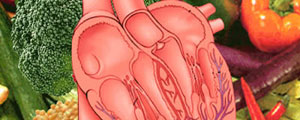
Heart disease is one of Zimbabwe’s most lethal killers and is particularly seen in overweight postmenopausal women.
It is vital that women learn the truth about their heart disease risk and take action to protect themselves and their family.
In partnership with the World Health Organisation, the World Heart Federation organised World Heart Day to be held tomorrow.
Awareness events are hosted in more than 100 countries and this year’s theme is Take the road to a healthy heart.
“Genetics is no longer the primary determinant in the development of heart disease and approximately 80% can be attributed to poor lifestyle habits, says Try Chadyiwa, director general for the Heart Foundation of Zimbabwe.
In adults, unhealthy diets are linked to four of the top ten risk factors that cause premature death: high blood pressure, high cholesterol, overweight and obesity, and high blood sugar that is commonly seen in diabetes.
Recent changes to our diets, physical activity levels and how we live make us prone to heart disease.
Diets high in animal fat, low in fresh vegetables and fruit, and high in alcohol have been shown to increase the risk of heart disease and stroke. Choose a diet that is low in bad fat and salt.
- Chamisa under fire over US$120K donation
- Mavhunga puts DeMbare into Chibuku quarterfinals
- Pension funds bet on Cabora Bassa oilfields
- Councils defy govt fire tender directive
Keep Reading
Scientists now understand that fat — especially fat around the stomach — can significantly impact our blood pressure, blood cholesterol levels and interferes with our ability to use insulin effectively. Insulin is needed for energy and one’s metabolism.
Body mass index (BMI) and stomach circumference are two standardised methods of measuring one’s cardiovascular risk.
As we get fatter, the risks of developing Type 2 diabetes and high blood pressure significantly rises.
Statistics show that 58% of diabetes and 21% of ischemic heart disease can be attributed to a BMI above 21.
“Children are vulnerable too. The risk for cardiovascular disease can begin before birth and increase throughout childhood with exposure to unhealthy diets, lack of exercise and tobacco,” Chadyiwa said. Physical inactivity learned in childhood often continues into adulthood. This contributes to a child’s increased risk of heart disease and stroke later in life.
Physical inactivity also contributes to overweight and obesity. Overweight children in Zimbabwe is a growing concern and can set them up to suffer from diabetes and heart disease at a younger age. The vast majority of tobacco users in Zimbabwe began when they were adolescents and if a child’s parents smoke, they (children) are three times more likely to smoke themselves.
Smoking produces inflammation and damages the lining of blood vessels, increases blood clots and strokes, and negatively affects blood cholesterol levels.
We have an opportunity to prevent the future impact of heart disease and stroke by adopting heart-healthy living from childhood throughout adulthood.
The Heart Foundation Of Zimbabwe is hosting Go Red For Women conference in 2014 that will aim to educate women about the devastating effects of heart disease, and how it impacts our families, society and national economy.
For more information about Go Red For Women and on how you can partner with the Heart Foundation of Zimbabwe, please contact Try Chadyiwa at [email protected], 0777855331, and visit www.heartfoundation.co.zw











